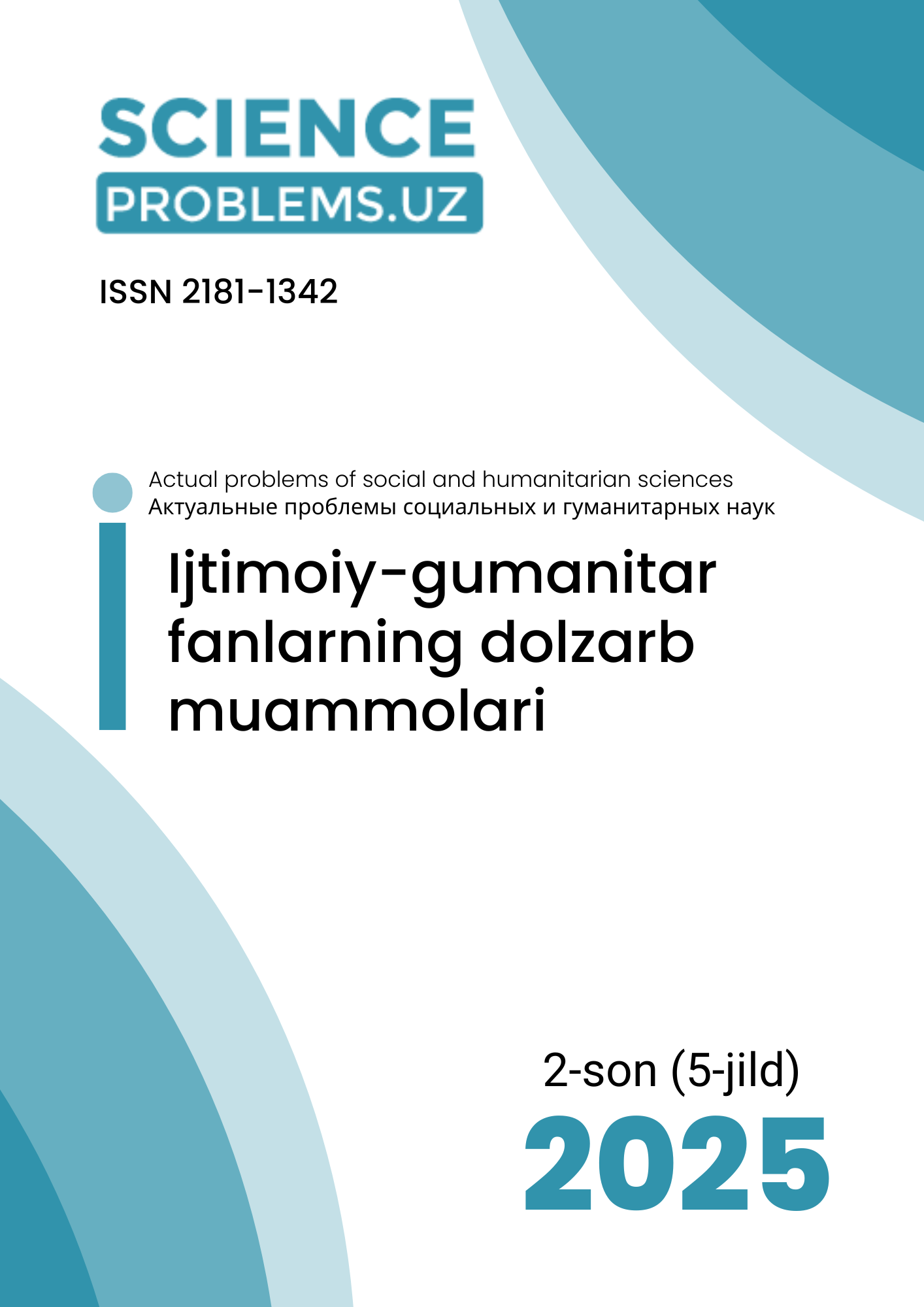METHODS OF USING MODERN TECHNOLOGIES IN PRIMARY EDUCATION
DOI:
https://doi.org/10.47390/SPR1342V5I2Y2025N97Keywords:
modern technologies, primary education, learning process, pedagogy, innovative methods.Abstract
The use of modern technologies in primary education enhances the learning process, making it more engaging, effective, and innovative. This article discusses the essence of modern pedagogical technologies, their application in the primary school educational process, and the outcomes of their implementation. The research findings demonstrate that modern technologies boost students' motivation to learn, foster independent thinking, and develop creativity skills.
References
1. Jonassen D. H. Learning to solve problems with technology: A constructivist perspective. Pearson Education. 2004.
2. Mayer R. E. Multimedia Learning. Cambridge University Press. 2009.
3. Prensky M. Digital Natives, Digital Immigrants. On the Horizon, 9(5), 1-6. 2001.
4. Gee J. P. What Video Games Have to Teach Us About Learning and Literacy. Palgrave Macmillan. 2003.
5. Vygotsky L. S. Mind in Society: The Development of Higher Psychological Processes. Harvard University Press. 1978.
6. Clark R. C., & Mayer R. E. E-Learning and the Science of Instruction: Proven Guidelines for Consumers and Designers of Multimedia Learning. Wiley. 2011.
7. Finlyandiya Ta’lim Vazirligi Smart Education Strategies: Finland’s Experience. Helsinki: Ministry of Education and Culture. 2021.
8. Shneider B., & Pea R. The Real Learning Opportunities of Virtual Worlds. Springer. 2013.
9. Madalov, N. E. (2020). Linguopsychological changes in an adult when learning a foreign language. ISJ Theoretical & Applied Science, 10(90), 417-421.
10. Madalov, N. E. (2019). Types of transformations in the process of translation. In Наука и инновации-современные концепции (pp. 111-115).
11. Madalov, N. E., & Abduvaitov, A. S. (2019). Euphemisms in English and their Russian equivalents. In Наука и инновации-современные концепции (pp. 59-61).
12. Janikulovna, D. S., Botirjonovna, M. F., Barno, O., & Sadokat, A. (2019). The role of foreign culture in learning a foreign language. Наука, образование и культура, (6 (40)), 44-45.
13. Samixdjonovna, M. F. (2023). PEDAGOGIKADA TERMINALOGIYA. Новости образования: исследование в XXI веке, 1(9), 1226-1228.
14. Feruza, M. (2023). IMPROVE LANGUAGE SKILLS USING AUTHENTIC WORKS. European International Journal of Multidisciplinary Research and Management Studies, 3(05), 163-167.
15. Mirzayeva, F. (2023). STRUCTURAL-SEMANTIC CHARACTERISTICS OF ENGLISH AND UZBEKIN PROVERBS WITH NOUN COMPONENTS. Бюллетень педагогов нового Узбекистана, 1(11), 84-87.
16. MIRZAEVA, F. (2024). PROVERB AS AN OBJECT OF LINGUISTIC RESEARCH. World Bulletin of Social Sciences, 33, 82-87.








